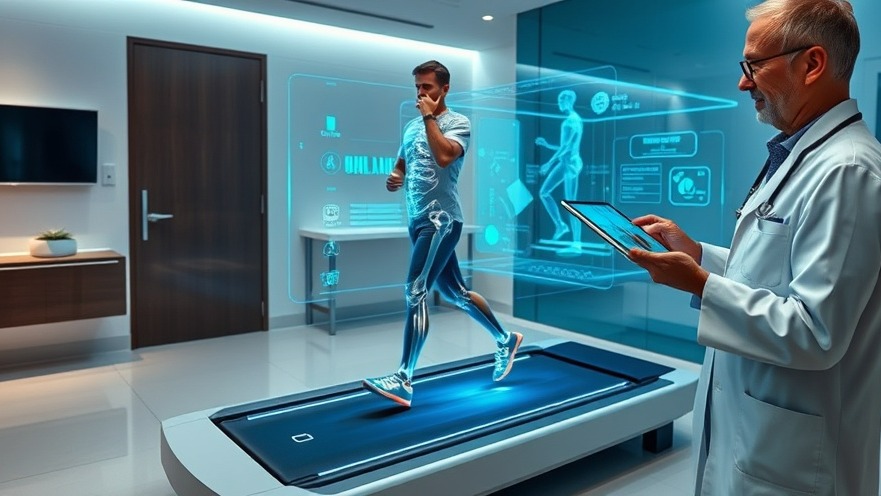
Unlocking the Power of Gait Analysis in Concierge Healthcare
In the realm of healthcare, gait—the way a person walks—offers profound insights into overall well-being, serving as a vital sign that can reveal much more than just physical health. For concierge health practitioners, embracing the advancements in AI-powered gait analysis presents an opportunity to enhance patient care and engagement unlike ever before. While traditional fitness trackers provide limited information, the integration of AI allows us to peek deeper into the nuances of a patient's mobility, potentially changing the landscape of preventive healthcare.
Understanding Gait: A New Vital Sign
Consider this: what if simply observing a patient's gait could enable healthcare providers to detect early signs of cognitive decline, chronic diseases, and even the risk of falls? Recent studies have begun to suggest that gait speed is now recognized as the 'sixth functional vital sign.' This evolution in understanding places a career-long focus on mobility quality, not just quantity, into the hands of frontline practitioners.
This insight is particularly valuable for concierge practitioners who prioritize personalized care. The ability to assess a patient's health through their mobility has wider implications. For example, elderly patients might display subtle shifts in their gait that could indicate a decline in their health status or an increase in fall risk. By identifying these patterns early, proactive interventions can be set in motion, fortifying the practitioner’s role in comprehensive health management.
Go Beyond Walk Counts: Embrace AI Technology
While patients often track their steps using pedometers or fitness apps, these tools typically only provide a snapshot of physical activity levels. To truly leverage gait analysis, concierge health practitioners must begin to integrate advanced AI-driven technologies into their practices. By utilizing mobile devices—such as smartphones equipped with sensors—practitioners can assess and analyze real-time data about their patients' gait characteristics. This approach democratizes access to sophisticated monitoring tools, enabling clinics to deliver advanced care without overwhelming patients with complex devices.
Future Insights from AI in Patient Care
The journey towards fully integrating digital mobility outcomes (DMOs) into patient monitoring systems has seen promising advancements. Initiatives such as Mobilise-D unite researchers and tech innovators to refine how we measure mobility through wearable technology and mobile solutions. The goal is to establish regulatory frameworks that recognize these insights as standard components in clinical trials and patient care routines.
This shift opens up avenues for concierge health practitioners to offer more than just routine check-ups. By employing these cutting-edge tools, practitioners can not only improve health outcomes but also solidify their standing as community leaders in innovative healthcare delivery. Imagine the potential for patient retention improvement if practice owners could demonstrate enhanced outcomes through such technology.
Overcoming Technological Hesitance
For many healthcare providers, the introduction of advanced technology can be intimidating. However, it’s essential to recognize that the primary goal here is to enhance patient care—not to replace the human touch within the practice. By gradually adopting AI and machine learning systems, practitioners can cement their positions as tech-savvy leaders while maintaining the essential personal connections that characterize concierge health.
Additionally, ongoing education and training opportunities can prepare staff to fully embrace these innovations, streamlining workflows while allowing the focus to remain on patient interactions. Empowering staff with knowledge demystifies technology, ensuring that the benefits of gait analysis can be thoroughly realized.
Take Action: Centering Patient Mobility Quality Today
The call to action for concierge health practitioners is clear: Invest in AI-driven gait analysis tools and make them integral to your practice’s patient care strategy. Not only will this enhance patient monitoring and intervention opportunities, but it will also position your practice at the forefront of a healthcare revolution that prioritizes holistic well-being.
By leveraging the power of technology, you'll not only improve health outcomes for your patients but also enrich your practice and establish deeper trust within the community you serve. Embrace this transformative journey; the future of personalized healthcare is not just on the horizon—it’s at your doorstep.
 Add Row
Add Row  Add
Add 




Write A Comment